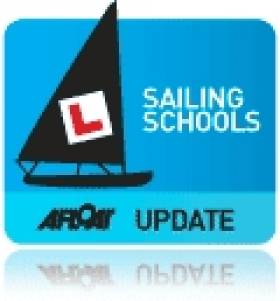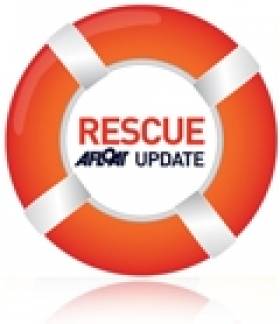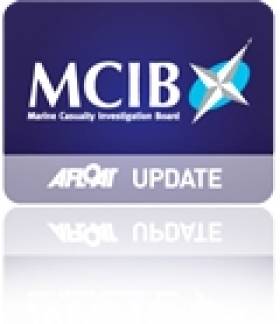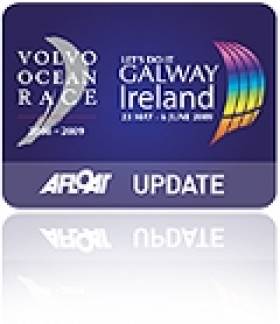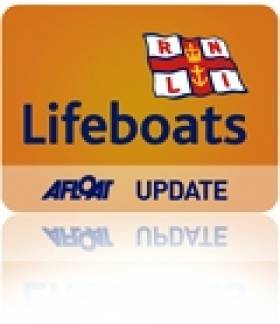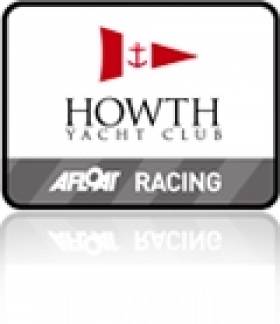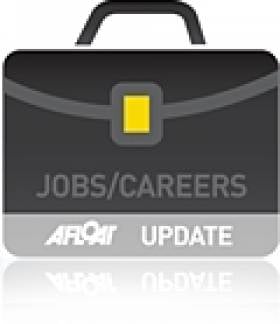Displaying items by tag: Skipper
Learn to Skipper A Yacht Offshore
#offshore – Skippering a yacht on an ocean going passage is a serious undertaking requiring significant skills and experience. Getting those skills and experience has always been tricky and every year the rescue services are called out to assist yachts and skippers that have gone beyond their means.
Previously, a skipper looking to build ocean-going experience has had few options other than to join a delivery yacht or maybe crew on the ARC. This gave mileage and some experience, but was no substitute for expert tuition from ocean-going instructors.
To fill this skills gap, a UK sailing school operator, Rubicon 3 has launched a series of three Ocean Crossing Masterclasses, running between October and December 2015.
Based on Rubicon 3's specialised 60' expedition sailing yacht, each masterclass comprises an intensive two weeks of tuition at sea, taught by two instructors. The syllabus has been developed from their skippers' huge experience of expedition and ocean sailing and is a mix of practical and theoretical lessons on how to skipper a boat across an ocean. Every day sees a structured lesson plan, with all critical skills covered. These include route planning; weather routing; yacht preparation; fixes of common problems at sea; celestial navigation and heavy weather techniques, including practical demonstrations of storm sails, tri-sails, drogues and storm boards.
These masterclasses are open to everyone, with ten places on board each one. There are watch leader positions on each masterclass ideally suited for those looking to gain their RYA Ocean Yachtmaster qualifying passage.
Bruce Jacobs, director of the company said, "It's critically important that before skippering a yacht far offshore, you have the practical skills and experience to match your theory. Whether it's how and when to deploy a tri-sail, or conditions are getting nasty and it's time to launch a drogue - the first time you do it should not be the time you really need it. These masterclasses are the very best way to prepare yourself to skipper offshore and to vastly widen your cruising range."
Masterclass dates, routes & prices
Bristol, UK - Baiona, Portugal: October 18 - November 1, 2015. £1,395
Baiona - Madeira - Azores: November 7 - 22, 2015. £1,495
Azores - Madeira - Gibraltar: November 28 - December 13, 2015. £1,495
#MCIB - The families of two fishermen found dead at sea off the Skerries last April may never uncover the circumstances that led to their demise. But the official report into the incident indicated that the absence of lifejackets was a significant contributing factor.
Ronan Browne (26) and David Gilsenan (41) were reported missing on the evening of 1 April after failing to return from a trip tending to lobster pots.
Their vessel, Lady Linda, was found the following morning upturned in an oil slick off Clogherhead with no sign of the crew.
It wasn't until a week later that their bodies were discovered caught in the vessel's fishing gear some five miles east of Clogherhead, as previously reported on Afloat.ie.
Post-mortem results found that both men died from drowning, with Gilsenan also showing signs of hypothermia.
With no eyewitnesses to the incident, the report by the Marine Casualty Investigation Board (MCIB) indicated a number of possible causes from eqiupment malfunction or shifting of lobster pots on deck, to the wave height and weather conditions on the day, which were reportedly deteriorating when the boat left port.
It also said that Browne and Gilsenan "were lifelong friends, both men were experienced and qualified marine engineers in the fishing vessel industry. Both men were experienced in boat handling and fishing and had worked together on many occasions."
But the report emphasised the lack of personal flotation devices (PFDs) on board, and noted that emergency equipment was stored under the deck and not easily accessible.
The MCIB's recommendations include a review of the code of practice for fishing vessels under 15m to establish "revised stability critera" and ensuring that all boats are fitted with automatic radio beacons that deploy upon capsize.
In a separate incident, lack of proper maintenance led to an unlicenced boat taking on water off Co Kerry last August.
The Claire Buoyant was carrying one crew, five passengers and 21 sheep from Beginish Island to Ventry when the vessel began to lose stability.
Skipper Eoin Firtear - who the MCIB described as having "limited sea-going experience" - and his five passengers were rescued by passenger ferry. All sheep were jettisoned overboard, with 18 eventually recovered.
The report reminded that the carriage of livestock should only be undertaken in appropriately certified vessels.
- MCIB
- Marine Casualty Investigation Board
- report
- Lady Linda
- Clogherhead
- Ronan Browne
- David Gilsenan
- lobster pots
- Fishing
- drowning
- hypothermia
- missing
- malfunction
- wave height
- Weather
- lifejackets
- Personal Flotation Devices
- PFDs
- Code of Practice
- stability
- Radio
- beacon
- maintenance
- unlicenced
- Co Kerry
- Claire Buoyant
- Sheep
- Passengers
- Beginish Island
- Ventry
- Eoin Firtear
- Skipper
- Rescue
- Livestock
Donegal Skipper's Dramatic Alaska Rescue Story
#RESCUE - A Donegal-born skipper joined in the dramatic rescue of a fishing trawler crew in Alaska recently, the Donegal Democrat reports.
Seamus Hayden Jr, who captains the fishing vessel Clyde, was berthed in Lazy Bay at the southern end of the Kodiak peninsula when he responded to a call from fellow vessel the Tuxedni to assist the stricken Heritage, which was sinking a mile east of nearby Tanner Head.
“I rousted my crew and fired our main engine to join the Tuxedni in the search," he said. "I did not know at that time if the Heritage crew had abandoned ship.
“I informed everyone onboard my vessel to dress for extreme weather and to use utmost caution and a buddy system at all times around the vessel."
Visibility was low due to ice fog and the darkness of the Alaskan winter nights, and as they got closer to the Heritage's location - where the US Coast Guard was attemping a helicopter rescue - conditions were "horrendous", with ice-cold winds of 60 knots.
I was very worried for the safety of all involved, including our own," said Hayden.
The Donegal Democrat has much more on the story HERE.
Coastguard 'Overwhelmed' By Response to Glandore Search Appeal
#NEWS UPDATE - The Irish Coast Guard told RTÉ News that it has received an "overwhelming" response from the diving community to its appeal to join the search in West Cork for two missing fishermen.
Skipper Michael Hayes and crewman Saied Ali Eldin are still missing after the fishing vessel Tit Bonhomme ran aground in rough seas near Adam's Rock at the mouth of Glandore Harbour.
Only one of the six-person crew - 43-year-old Abdul Mohammed – is confirmed to have survived. The bodies of Kevin Kershaw (21) and Attia Shaban (26) were recovered last week, while the remains of Wael Mohammed (35) were found by civilian divers near the wreck site last Sunday.
Coastguard manager Declan Geoghegan said that search teams now have the 48 divers required to conduct an exhaustive search of the wreck area and urged further volunteers not to travel for the moment.
The search will concentrate on the waters between Adam's Rock and Long Point, where much of the debris from the trawler has washed up.
RTÉ News reports that more than 200 volunteers are assisting the coastal search by boat and on land, which is being co-ordinated from the village of Union Hall.
Report into Death of Crab Fisherman Prompts Call for Review of Stability Standards
#MCIB - The Marine Casualty Investigation Board (MCIB) has recommended a ministerial review of stability standards for fishing vessels following its report into the death of a crab fisherman off Co Cork in January last year.
Gerry Hegarty drowned after a wave struck the crab boat Carraig An Iasc, which was fully loaded with crab pots at the time, causing it to capsize and sending its two-man crew into the water.
Hegarty, who was not wearing a personal flotation device (PFD) or other buoyancy aid, got into difficulty while attempting to swim ashore with his crewmate and skipper James Fitzgerald, who subsequently raised the alarm.
Lifeboats from Ballycotton and Crosshaven, as well as Irish Coast Guard helicopter Rescue 117, were tasked to the incident. Divers from Naval Service vessel LE Emer located the sunken crab boat but no body was found.
A coastguard search of the area continued over a number of days without success. Hegarty's body was eventually recovered on 17 February 2011 at Ringabella Strand in Co Cork.
The MCIB found it probable that the Carraig An Iasc encountered wind or wave action or a combination of both that caused the vessel to heel to an angle beyond which it was able to recover from its loaded condition. The vessel's Code of Practice Declaration of Compliance was valid until 15 July 2013.
The board noted that there have been "a number of incidents caused by overloading boats thus effecting stability", and recommended that the Minister for Transport reviews and revises the stability standards in the current Code of Practice to improve these standards.
It was also recommended that a safety notice be issued to all skippers and owners in the fishing fleet reminding them of their legal responsibility to ensure that all their crew wear PFDs or lifejackets while on deck.
The full report is available to download as a PDF from the MCIB website HERE.
- Crosshaven
- Cork
- Safety
- Fishing
- Ballycotton
- Lifejacket
- Lifeboat
- Marine Casualty Investigation Board
- Coastguard
- Irish Coast Guard
- Skipper
- naval service
- helicopter
- MCIB
- Rescue 117
- personal flotation device
- Minister for Transport
- LE Emer
- standards
- drowned
- crab fishing
- Carraig An Iasc
- Gerry Hegarty
- James Fitzgerald
- PFD
- Ringabella Strand
- Code of Practice
- stability
- overloading
VOR Skipper Cammas Receives French Sporting Honour
Volvo Ocean Race skipper Franck Cammas has been presented with one of France’s most prestigious sporting honours.
The man in charge of the Groupama sailing team was awarded the Grand Prix de l’Académie des Sports in Paris recently, recognising his achievements in sailing in 2010.
These included his skippering of the 100ft trimaran Groupama 3 non-stop around the world in a record-breaking in 48 days, 7 hours, 44 minutes and 52 seconds.
Cammas is only the fifth sailor to be presented with the award, following Whitbread Round the World Race skipper Eric Tabarly, 1983 America’s Cup winner John Bertrand, solo sailor Isabelle Autissier and Alinghi team principal Ernesto Bertarelli.
But Cammas isn't resting on his laurels, as he's currently preparing with his team to compete in the next Volvo Ocean Race kicking off next month.
He will lead a crew of 11 sailors - including Kerryman Damian Foxall - on the 70ft monohull Volvo Open 70 Groupama 4 in the 39,000 nautical mile race, which is set to conclude in Galway next summer and will also involve Wexford sailor Justin Slattery, who is in the crew for Team Abu Dhabi.
The action starts in Alicante, Spain on 29 October with the first in-port race. The first leg to Cape Town then begins on 5 November.
Lough Derg Lifeboat Rescue Yacht Aground
At 18.37 the lifeboat launched with helm Colin Knight, Eleanor Hooker and Ger Egan on board. The lake was calm and with good visibility from the moonlight when night fell. The lifeboat came alongside the casualty vessel at 19.05hrs and found that the person on board was safe and unharmed. The lifeboat took soundings in and around the entrance to the private harbour and having decided that there was not sufficient depth for the draft of the vessel, took the vessel off the sandbar and then towed her to the safety of the public harbour of Kilgarvin Quay a short distance away.
The skipper of the vessel thanked the crew of the lifeboat. He said that he was 'very glad you came out, I was preparing myself to sit here all night'.
The lifeboat returned to station and was ready for service again at 20.50hrs
Related Safety posts
RNLI Lifeboats in Ireland
Safety News
Rescue News from RNLI Lifeboats in Ireland
Coast Guard News from Ireland
Water Safety News from Ireland
Marine Casualty Investigation Board News
Marine Warnings
Joe English Lunch in Howth Yacht Club
Howth Yacht Club is staging a lunch to help Round the World skipper Joe English who has been diagnosed with Alzheimers disease according to a note on the club website.
Coming from a career in sailing that started in 1976 in North Sails' Kinsale loft, Joe is probably best known for his role as Skipper of NCB, the Irish maxi yacht which competed in the 1989 Volvo Ocean Race.
He also took over as Skipper of Toshiba in the 1997 race. More locally, Joe was an innovator in the Cork 1720 project in conjunction with Tony Castro.
In recent years, Joe has been diagnosed with Alzheimer disease at a very young age and recently featured in a Prime Time documentary on RTE on the subject. A charitable trust has been launched to help Joe and his family over the coming years and this year's HYC Christmas lunch is to benefit this worthy cause.
The lunch is on Friday, 10th December
Knox-Johnston in Search for Ten Skippers
Sailing legend Sir Robin Knox-Johnston has launched his latest search for ten exceptional skippers to lead the internationally sponsored teams in the next edition of the Clipper Round the World Yacht Race. Clipper 11-12 will start form the UK in August next year and on board the matched fleet of stripped down 68-foot ocean racing yachts will be teams of novice crews representing all walks of life. The only professional sailor on board, the skipper has the challenge of turning such a diverse mix of people into a finely-honed racing team and it's one that professionals understand can deliver valuable benefits to their CV.
Sir Robin says, "Tackling this unique challenge, with its roaring gales and towering seas, as well as the frustrations of tricky calm spells, is no mean feat. The skippers we are looking for need to be up to the challenge of competitively racing our 68-foot yachts around the world with a non-professional crew onboard.
"The successful individuals must have the ability to draw the line between competitiveness and safety, whilst also motivating a sometimes exhausted crew into an enthusiastic and committed team.
"Leading a team of novice sailors in a race around the world is one of the hardest and most challenging jobs that any skipper could ever undertake and not everybody is up to this challenge."
Successful candidates will skipper one of the Dubois designed Clipper 68s and must also have an understanding of the commercial and media demands of this high-profile global event which can help launch a skipper's career.
The youngest skipper to win the Clipper Race was Alex Thomson who was just 25 when he led a team in the 1998 edition of the race. Twelve years later and Alex is getting his brand new IMOCA Open 60, Hugo Boss, ready for the double-handed Barcelona World Race which starts in December. The Gosport based sailor is widely considered to be one of the UK's top solo ocean racers and once he has returned for the Barcelona World Race he will be hoping to fulfil his dream by becoming the first non-Frenchman to win the Vendee Globe.
Other Clipper skippers who have gone on to secure sponsorship for solo ocean racing include Hannah Jenner who skippered in both the Clipper 07-08 and 09-10 Races. Hannah will be taking part in the Global Ocean Race next year, a 30,000-mile double-handed race around the world. Similarly Clipper 09-10 skipper, Chris Stanmore-Major is about to set off on his 2,500-mile qualifying passage for the VELUX 5 OCEANS race onboard his Open 60 Spartan having secured sponsorship to take part in what is deemed to be 'The Ultimate Solo Challenge'.
Interested skippers need to have the correct level of qualifications, including an MCA approved Ocean Yachtmaster. They need to be excellent sailors who put seamanship and safety first, have a proven track record in sail training and can demonstrate that they are strong team leaders.
Clipper Race Director Joff Bailey, skipper of New York in the Clipper 05-06 Race, says, "Being a race skipper in the Clipper Round the World Yacht Race was one of the hardest jobs I have ever done. However, the reward and satisfaction when you see the crew that you have trained react to situations as though they were full-time professionals and the look of achievement on their faces when they have crossed an ocean and finished a race, is the best high in the world."
If you think you are up for the challenge and have the right characteristics and experience contact Sir Robin by email on [email protected] to request an application form.
North West Charter Skippers Association
Enjoy the very best in Sea Angling Charters.



























